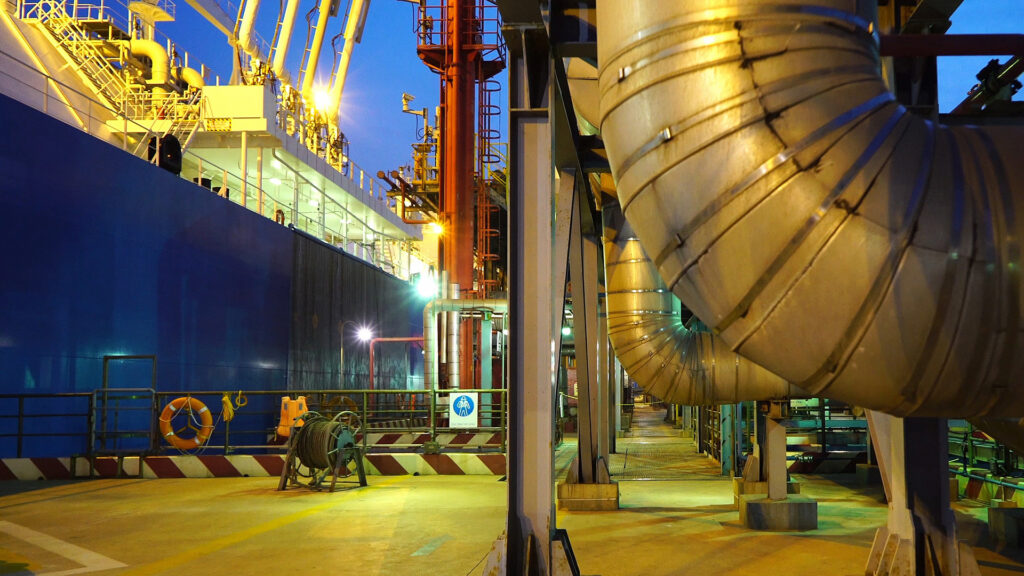Argentina’s nationalisation actions causes a stir in oil markets
Since the Argentine government’s announcement on 16 April 2012, regarding the nationalisation of oil company YPF’s controlling stake in Spanish-owned Repsol YPF SA, tensions have arisen between Argentina and Spain.
Argentina, through this forced nationalisation, has wiped out Repsol’s majority stake by seizing 51% of YPF’s shares, and with it, creating a number of legal issues.
Spain, together with the EU, have already declared dissatisfaction with Argentina’s decision and have started to analyse the possible legal solutions.
This briefing provides an overview of some of the legal questions that arise from the controversial actions of Argentina. Of course, Bolivia’s recent nationalisation of Spanish-owned Red Electrica shows that this is far from an isolated issue. Much of what we outline below in relation to the investment, insurance and EU trade issues in relation to Argentina will no doubt also apply to Bolivia.
- We examine YPF’s nationalisation from an investment perspective, by reference to the standard protection offered under the Spain–Argentina Bilateral Investment Treaty (BIT). We look at the possible arbitral fora before which Spain could bring a case, and the issues regarding the lack of Argentine compliance in the past.
- We also consider political risk insurance. The main issue in this regard is that market sources believe Repsol did not purchase relevant political risk coverage for YPF and therefore would not be covered in respect of expropriation loss. Nevertheless, Argentina’s action is likely to have an impact on the political risk insurance market.
- Finally, we take a look at EU trade issues, including the possible legal basis under a potential WTO case and the trade retaliatory measures that can be pursued by Spain and the EU.
The Bilateral Investment Treaty
There is a Bilateral Investment Treaty (BIT) between Spain and Argentina, which was signed in 1991. BITs are treaties by which two states encourage mutual investment by guaranteeing certain protections to investments made by nationals of the other state. This BIT gives a number of the standard protections. Thus, Argentina has guaranteed, amongst other things:
- That it will not nationalise or expropriate any investment of a Spanish investor save where it is in the public interest, and non-discriminatory. Any such expropriation must be made against prompt, adequate compensation in freely convertible currency.
- That it will give Spanish investments fair and equitable treatment (FET). This treatment must in any event be no less favourable than that which it gives Argentine investors (the national standard) or investors of a third country (the most favoured nation [MFN] standard).
- That it will give Spanish investments full protection and security.
Assuming that Repsol can satisfy the definition of an investor, it would appear that Argentina is in breach of its obligations under this treaty, unless and until compensation is paid. Even if it does make some payment, the nationalisation may still be a breach and in any event there is likely to be considerable dispute as to its adequacy. Issues will also arise as to whether the apparent additional breaches of other obligations, such as fair and equitable treatment, mean that Repsol can be compensated for further losses beyond the mere value of the shareholding. Because of the MFN standard, lawyers will no doubt be examining other BITs to which Argentina is a party to see whether they give more favourable treatment to investors of third countries than are specifically given by this BIT. If so, Repsol can claim that treatment for itself.
Since 2009, investment protection has been within the ambit of the powers of the EU rather than of the Member States. The European Parliament has already asked the Commission and the Council to intervene, as set out below.
Rights under this BIT, go further than the diplomatic measures and protections which can take place between the contracting states. The BIT can be enforced directly by Repsol by submission to the Argentine courts or (rather more likely) arbitration either through the International Centre for Settlement of Investment Disputes (ICSID), or by ad hoc arbitration under UNCITRAL Rules. Repsol can therefore claim for itself, and does not have to rely on the EU giving diplomatic protection. Indeed, should Repsol bring a claim the ICSID connection prohibits diplomatic protection unless Argentina fails to honour any award.
Even once Repsol obtains an award, however, that does not guarantee that it will receive compensation. Although Argentina has waived its sovereign immunity in relation to the adjudication of disputes by agreeing to submit them to arbitration, it has not waived the immunity of its assets to execution. Repsol would not be able to enforce against Argentine assets which the State holds in its sovereign capacity. It can only do so, generally, in respect of assets where the State has descended into the commercial arena, where they are held “de iure gestionis” that is, as English law describes it, where they are in or intended for commercial use.
Until comparatively recently, the mixture of the existence of the award, the possibility of enforcing against commercial assets, the moral pressure available from the World Bank (under whose auspices ICSID was set up) and diplomatic pressure from the investor’s home state have been sufficient to ensure that practically all arbitration awards under BITs have been met. Argentina, however, has in the region of US$0.5 billion in unsatisfied claims against it and is understood to be protecting its assets by ring fencing them in domestic banks. Clearly, it does not wish to meet its obligations. Other states may have similar plans.
Political risk insurance
In the absence of full compensation, the Argentine government’s seizure of the shares of YPF would trigger an event under one or more of the insured risks of a political risk insurance (PRI) policy e.g. expropriation, appropriation, nationalisation, deprivation etc.
However, according to market sources, Repsol did not purchase relevant political risk coverage for YPF. This may be for a combination of reasons including the fact that YPF is a substantial asset accounting for 25% of the Repsol group’s operating income, and so the extent of PRI cover available may have been limited, added to its potentially high cost. Also, Argentina (like Venezuela and Bolivia) is considered to be a higher risk for underwriters, many of whom sustained substantial losses when the Peso was devalued in the late 1990’s and Argentine held dollar assets were pesified (converted into pesos). The appetite of underwriters for political risks in Argentina may therefore not have not improved since the advent of Cristina Fernandez’s government.
Separate litigation funding of Repsol’s claims against the Argentine government may however be available including by a combination of third party funding and/or the purchase of “After the Event” or “ATE” insurance, which primarily covers Repsol against any negative costs orders it may face if its claims prove to be unsuccessful. Such alternative means of funding claims may be expensive, however, leaving Repsol to seek alternative remedies, as outlined above.
Although political risks insurers may not have covered Repsol in respect of its expropriation loss, trade credit underwriters could face claims from counterparts to commercial agreements with Argentine companies if such agreements are affected by EU sanctions/trading restrictions. Similar claims may also arise in respect of the knock-on consequences for supply chains.
Whilst a “mega loss” in the insurance market appears to have been avoided, the collateral effects of the seizure of YPF is likely to be felt in the insurance market for some time.
Trade retaliatory measures
After the Lisbon Treaty entered into force on 1 December 2009, the EU Commission became the competent institution to take measures to defend the interests of EU investors in third countries. Article 207(1) of the Treaty on the Functioning of the European Union (TFEU) explicitly mentions foreign direct investment (FDI) as forming part of the common commercial policy. However, the mechanisms to make this protection effective are still to be developed. Therefore, the most sound legal basis to frame the dispute seems to be the Bilateral Investment Treaty (BIT) regulating investment relations between Argentina and Spain, which provides for dispute settlement procedures which can be activated in the event of alleged infringements.
However, as described above, Argentina has more pending cases against it before ICSID than any other State and has previously demonstrated great reluctance to comply with awards against it.
Another possibility that has been considered by the Spanish government is requesting the EU to take the case before the World Trade Organization (WTO) dispute settlement system. A possible legal basis for the complaint could be the General Agreement on Trade in Services (GATS). In particular, the expropriation of YPF could arguably constitute an infringement of Article XVI and XVII GATS and Argentina’s specific commitments. Articles XVI and XVII GATS contain a National Treatment (NT) obligation, which is one of the cornerstone principles of the WTO that could be allegedly violated given the discriminatory treatment received by Spanish service providers. Argentina specifically committed to provide National Treatment to foreign companies that carry out services that are “incidental to mining”.
It may also be argued that Argentina is violating Article VI GATS since the obligation to ensure that all measures of general application affecting trade in services are administered in a reasonable, objective and impartial manner would not be respected.
Nevertheless, it should be highlighted that an eventual decision favourable to the EU would not give rise to a right to compensation, but would enable the EU to retaliate against Argentina if legislation violating WTO Law is not modified.
As another possibility under consideration by the Spanish executive in order to bring Argentina’s government back to the negotiating table, the Spanish government together with the EU is contemplating the partial suspension of preferential trade benefits for Argentine exports granted under the Generalised System of Preferences (GSP).
The GSP is an autonomous trade arrangement through which the EU provides non-reciprocal preferential access to the EU market to developing countries. Its main goal is to contribute to the reduction of poverty and the promotion of sustainable development and good governance by fostering trade relations with developing countries.
The Spanish government has declared its intentions to put an end to Argentina’s trade preferences under the GSP earlier than what was scheduled, that is, before 1 January 2014 due to a modification of the GSP system by the EU.
According to the European Commission, about 27% of Argentine exports representing about Euros 2,400 million benefit from lower custom duties under the GSP. More specifically, Argentine products benefiting from lower tariffs are, inter alia, biodiesel, soybean, sunflower and citrus oil, frozen fish, tobacco, mandarins and grapes.
In this regard, the European Parliament approved, on Friday 20 April 2012, a resolution urging the European Commission and the Council to discuss the partial withdrawal of GSP benefits from Argentina’s exports to the European market.
Likewise, the ongoing trade negotiations for an Association Agreement between the EU and Mercosur will also be negatively affected by putting a strain on the climate of understanding and friendship needed agreements, the European Parliament alerted. Hence the EU could put an end to, or freeze temporarily, negotiations of the Association Agreement with Mercosur, which started back in 1995. Instead the Spanish government has suggested closing bilateral agreements in order to exclude Buenos Aires from any possible agreement.
However, Uruguay, who seemed to have been recently critical of Argentina’s trade restrictive policies, has rejected Spain’s reported proposal to exclude Argentina from the negotiations. Luis Almagro, Uruguay’s Foreign Minister, has stated that excluding any of the four Mercosur members – Paraguay, Brazil, Uruguay or Argentina – would generate institutional imbalances within those countries and was not going to be considered.
The Spanish Government has already taken a first step by announcing, on Friday 20 April 2012, plans to restrict biodiesel imports from Argentina, valued at about Euros 750 million, according to Spain’s Renewable Energy Producers Association. This restriction will be executed by assigning production quotas to national biodiesel plants, thereby giving preference to locally produced bio fuel.
The restriction of imports of bio fuel was planned to be implemented during Summer 2011. However, the Spanish Government decided not to enact the measure to avoid possible political frictions.
This measure is likely to be followed by the partial suspension of GSP benefits, consequently covering the whole EU market and a wider scope of products.
EU Foreign Affairs Ministers met on Monday 23 April 2012 to examine the possible responses to YPF’s expropriation. Nevertheless, an immediate decision will not be taken until the next Council of Ministers meeting takes place in May.
It remains to be seen whether the mixture of legal, diplomatic and moral pressure which has worked well in the past can apply equally in these more straightened and unsettled times.
Download a PDF version of ‘Argentina’s nationalisation actions causes a stir in oil markets’









-1024x683.jpg)